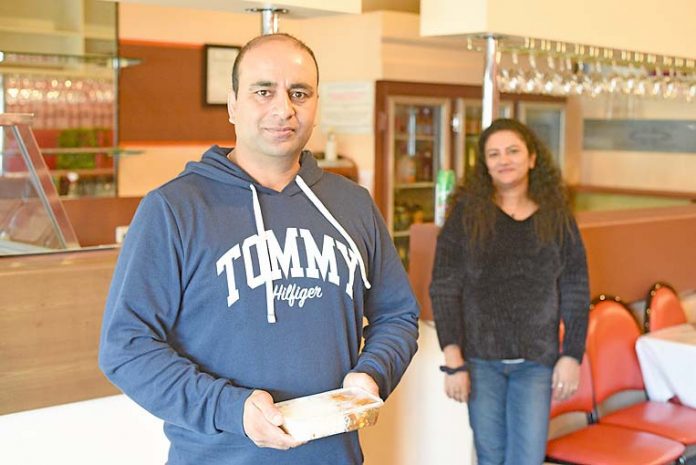THE implementation of mandatory COVID marshals to ensure customers are complying with current restrictions will have minimal impact on the operations of licenced premises, according to Limestone Coast businesses.
Under new plans by the state’s Transition Committee, pubs, clubs, restaurants and licenced venues will require a specially trained staff member to oversee social distancing, crowd controls and health advice as of August 21.
At a press conference, Police Commissioner Grant Stevens said the new directive would act as a visual reminder for patrons to adhere to social distancing obligations.
Marshals will be required to undertake an online training course and need to wear clothing identifying them as the facility’s COVID supervisor.
“This will mean a person who is readily identifiable as a COVID Safe marshal must be on the premises providing support and assistance,” Comm Stevens said.
“The purpose for this is to ensure people are reminded of their social distancing obligations and that hygiene facilities are properly maintained and people are held to account for non-compliance.
“This is an important step that enables us to maintain the current levels of distancing obligations we have on businesses, allowing them to remain at one person per two square metres, as opposed to having to introduce tighter restrictions or caps that would inhibit their ability to trade as effectively as possible.”
Blue Lake Indian director Amit Sharma (pictured right) said the online training would help businesses ensure the correct procedures were being followed.
“We are following all of the rules in the restaurant and if there is a group of people, we will only serve alcohol on the table and while they are seated,” he said.
“Our staff make sure social distancing is maintained and make sure seating arrangements are definitely 1.5m apart.
“The marshal will be a repetition of what we are already doing, but it will help us because it will confirm to us if we are following the rules correctly.
“It will make people responsible in implementing the strategies and nobody will be able to escape them.”
Caffé Belgiorno manager Anna Gentile said the new directive would have little effect on the business as staff were well versed COVID-19 restrictions.
“All of our staff know what is expected and they know they are required to check to see if the restrictions are being followed, no matter they are working at the bar or on the floor,” she said.
“Staff make sure people are 1.5m apart and we measure all of our tables before service to make sure they are appropriately distanced.
“For us, it will not change much, but there is still not 100pc understanding when you explain to a customer why you need to keep 1.5m distance when you are coming to order.
“ Most businesses have probably educated their staff and the staff are always explaining and reminding people of the restrictions.”
South Australia’s peak hospitality and tourism industry body said businesses were already complying with restrictions, but viewed the new restrictions as low cost tool to reinforce the rules.
“At the very least, it reminds everyone that we have to be responsible,” Australian Hotels Association SA president Ian Horne said.
Mr Horne hoped the online course would be simple to access and easy to complete by prospective marshals.
“You do not need an independent training course to say wash your hands and stand 1.5m apart,” he said.
“We should not make it overly bureaucratic.”
Victoria Hotel owner Steve Johnstone said staff at the Port MacDonnell facility already ensuring customers comply with restrictions and any further changes could be adhered to within the existing staff ranks.
“Already we have a monitor in place, usually the duty manager will take the lead role and then delegate from there,” he said.
“Our gaming room is cleaned every 20 minutes, we advise people if they are too close, so there is not going to be much change.”








